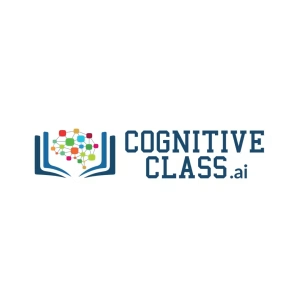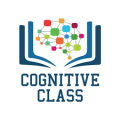- All
- Favorite
- Popular
- Most rated

Performing Database Operations in the Cloudant Dashboard
Master performing database operations within the IBM Cloudant Dashboard. Learn to interact with your NoSQL database, manage data, and run queries directly from the dashboard for cloud-based applications.

Using an HTTP API to Create and Query IBM Cloudant Databases
Learn how to use HTTP APIs to create, query, and manage IBM Cloudant databases. Master how to integrate Cloudant into your applications using RESTful APIs for seamless data access and management in the cloud.

Using the CQL Shell to Execute Keyspace Operations in Cassandra
Dive into the Cassandra Query Language (CQL) shell and learn how to execute keyspace operations. Understand how to define schemas, manage data models, and perform CRUD operations in Cassandra for NoSQL databases.

Performing Table and CRUD Operations with Cassandra
Discover how to perform CRUD operations and work with tables in Cassandra, a NoSQL database designed for scalability. Learn to handle large datasets, query efficiently, and use the Cassandra Query Language (CQL).

Improving Performance with Indexes in MongoDB
Learn how to create and optimize indexes in MongoDB to improve query performance. Understand the types of indexes, how they work, and best practices for making your MongoDB database faster and more efficient.

Aggregate Across MongoDB Documents
Master MongoDB aggregation techniques to perform complex queries across documents. Learn how to use aggregation pipelines for data transformation, analysis, and reporting within MongoDB for efficient data retrieval.

Working with Databases in IBM Cloudant
Explore how to work with IBM Cloudant, a fully managed NoSQL database. Learn to store, retrieve, and manage JSON data, perform queries, and optimize operations for scalable, cloud-based applications.

Execute CRUD Operations in MongoDB
Learn to perform CRUD (Create, Read, Update, Delete) operations in MongoDB. Master the basics of working with MongoDB to manipulate and manage data efficiently in your web applications using Python or other tools.

Create Your First MongoDB Database
Learn to create your first MongoDB database. Explore how to design, store, and query documents using MongoDB, and understand the basic concepts of NoSQL databases for modern web and application development.

Accessing MongoDB Using Python
Learn how to access and interact with MongoDB using Python. Master CRUD operations, query building, and database management to work with MongoDB in Python-based applications.

NoSQL and DBaaS 101
Dive into NoSQL databases and Database-as-a-Service (DBaaS). Learn the key concepts, advantages, and use cases for NoSQL databases like MongoDB, Cassandra, and Firebase, and understand how to work with DBaaS providers for scalable data storage solutions.

SQL and Relational Databases 101
Get started with SQL and relational databases. Learn the fundamentals of SQL queries, database design, and how to work with relational databases to store, retrieve, and manage data for a variety of applications.

Spark Overview for Scala Analytics
Learn how to use Apache Spark with Scala for big data analytics. Explore Spark's architecture, APIs, and practical applications in distributed data processing.

Scala 101
Get an introduction to Scala, a modern programming language. Learn its syntax, functional programming features, and compatibility with Java and big data frameworks like Spark.

Spark MLlIB
Explore Spark MLlib, the machine learning library for Apache Spark. Learn how to build and deploy scalable machine learning models in distributed environments.

Controlling Hadoop Jobs using Oozie
Learn how to schedule and manage Hadoop jobs using Apache Oozie. Explore its workflow automation capabilities to optimize big data processing.

Solr 101
Get started with Apache Solr, a scalable search engine. Learn how to index, search, and analyze data for enterprise-level search applications.

Developing Distributed Applications Using ZooKeeper
Understand how to develop reliable distributed applications with Apache ZooKeeper. Learn how to manage configurations, synchronization, and group services effectively.

Simplifying data pipelines with Apache Kafka
Learn how to streamline your data pipelines using Apache Kafka. Explore its capabilities for real-time data streaming and integration with big data systems.

Apache Pig 101
Get introduced to Apache Pig, a high-level platform for processing large datasets. Learn Pig Latin scripting to simplify data transformation tasks on Hadoop.

Accessing Hadoop Data Using Hive
Discover how to access and query Hadoop data using Apache Hive. Learn the basics of HiveQL and its integration with the Hadoop ecosystem for data analysis.

MapReduce and YARN
Master the concepts of MapReduce and YARN in Hadoop. Learn how they work together to process large datasets efficiently and manage cluster resources.

Spark Fundamentals II
Build on your knowledge of Apache Spark with advanced topics. Explore Spark's powerful APIs for handling complex data processing tasks in distributed environments.

Spark Fundamentals I
Dive into Apache Spark basics. Learn how this distributed computing framework handles big data processing efficiently, with an introduction to its key concepts and operations.
Comprehensive Guide to Cognitive Class
Overview of Cognitive Class: Cognitive Class, originally known as Big Data University, is an online platform renowned for delivering high-quality education in data science, AI, and other technology fields. This guide explores the key features, benefits, and impact of Cognitive Class, emphasizing how it empowers learners to gain valuable skills and advance their careers.Introduction to Cognitive Class
- What is a Cognitive Class? Cognitive Class is an educational platform offering a wide array of courses in data science, artificial intelligence (AI), and technology-related topics. Developed by IBM, it provides free access to resources aimed at helping individuals gain expertise in areas such as data analytics, machine learning, and cloud computing.
- Mission and Vision: Cognitive Class is dedicated to democratizing education by making advanced technological training accessible to everyone. The platform’s mission is to equip learners with the necessary skills and knowledge to thrive in the tech industry, thereby fostering a community of professionals capable of driving innovation and solving complex problems using data and AI.
Key Features of Cognitive Class
- Extensive Course Catalog: Cognitive Class offers a broad range of courses covering topics like data science, machine learning, AI, and cloud computing. These courses are designed to impart in-depth knowledge and practical skills, catering to learners at all levels, from beginners to advanced users.
- IBM-Developed Content: All courses on Cognitive Class are developed by IBM, leveraging the company's extensive industry expertise. This ensures that the content is not only relevant but also aligned with current industry standards, providing learners with high-quality instruction and practical insights.
- Free Access and Certification: Cognitive Class stands out by offering free access to its courses, making it an excellent option for individuals looking to enhance their skills without financial constraints. Additionally, learners can earn certifications upon completing courses, which can help validate their skills and improve career prospects.
Benefits of Using Cognitive Class
- High-Quality, Expert-Led Training: Courses on Cognitive Class are led by industry experts from IBM, ensuring that learners receive high-quality instruction grounded in extensive real-world experience. This expert-led approach equips learners with both theoretical knowledge and practical skills necessary for tackling real-world challenges.
- Accessible Education for All: By offering free access to its courses, Cognitive Class makes advanced technological education accessible to a global audience. This inclusivity helps bridge the gap in tech education and supports the development of a diverse and skilled talent pool.
- Career Enhancement and Development: Cognitive Class’s certification programs offer a significant boost to learners' resumes. By earning certifications, learners can validate their expertise, making them more attractive to employers and opening doors to new career opportunities in data science, machine learning, and AI.
Cognitive Class for Individuals and Organizations
- Skill Development and Mastery for Individuals: For individual learners, Cognitive Class provides an opportunity to develop and refine skills in data science, AI, and related technologies. The platform's courses are designed to offer practical knowledge and hands-on experience, enabling learners to apply their skills in real-world scenarios.
- Career Advancement: Cognitive Class certifications can enhance career prospects by providing recognized credentials that validate a learner’s expertise. These certifications can significantly improve job marketability and open up new career opportunities.
- Employee Training and Upskilling for Organizations: Organizations can utilize Cognitive Class to train and upskill their employees in areas such as data science, AI, and technology. The platform’s courses equip employees with valuable skills that can enhance performance and contribute to the organization’s success.
- Optimizing Data-Driven Strategies: By integrating Cognitive Class’s training into their development programs, organizations can enhance their data-driven strategies and technological capabilities, driving growth and improving overall effectiveness.
Success Stories and User Feedback
- Impact on Learners and Professionals: Cognitive Class has significantly impacted many learners and professionals by providing the skills and knowledge needed to succeed in the tech industry. Success stories highlight how individuals have leveraged the platform to advance their careers and achieve outstanding results.
- User Testimonials and Feedback: Feedback from users of Cognitive Class underscores the platform’s value and effectiveness. Testimonials frequently commend the quality of the courses, the expertise of the instructors, and the practical insights gained, reinforcing the platform’s role in delivering high-quality education.
Getting Started with Cognitive Class
- Creating an Account and Exploring Courses: Getting started with Cognitive Class is simple. Users can create a free account and explore the extensive course catalog, selecting courses that align with their learning goals. The platform’s user-friendly interface makes it easy to navigate and access educational resources.
- Choosing the Right Courses: To get the most out of Cognitive Class, learners should choose courses that match their skill level and career objectives. With topics ranging from introductory to advanced levels, users can tailor their learning experience to meet their specific needs.
- Utilizing Support and Resources: Cognitive Class offers additional support and resources to help learners succeed, including course materials, community forums, and expert guidance. Leveraging these resources can enhance the learning experience and maximize the benefits of the training.

